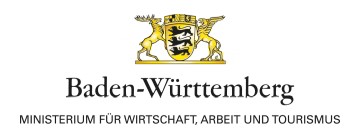Quantum computing offers great potential to advance classical computation running on current high-performance computing (HPC) infrastructures to a new level. Although quantum computing is still in its infancy, the arrival of the first quantum computers (QC), such as the IBM Q System One, now enables academia and industry to begin developing exciting solutions that are not feasible on current computer systems.
The project SEQUOIA End-to-End enabled researchers and industry stakeholders to evaluate the opportunities that quantum computing offers, and to test them on real-world scenarios from a multitude of application domains, such as manufacturing, robotics, energy, mobility, and the health sector, to name but a few. SEQUOIA End-to-End focused on three key areas:
Transparency and further development of the quantum software development process
SEQUOIA End-to-End tackled current challenges that were identified in the current development process, starting with the identification of an industrial quantum computing use case, continuing with the selection of an optimal QC algorithm, and ending with the execution on a quantum computer and the evaluation and interpretation of results. Here, problem-specific algorithm design for hybrid applications was key.
Quantum software engineering
It is of utmost importance to develop and employ easy-to-use tools, toolchains, approaches, best practices and systematic design throughout the development process.
End-to-end solutions
The project implemented eight industrial use cases that were identified in the areas of production, logistics, engineering, and automotive. Demonstrators and application-specific benchmarks were developed from these and in order to transfer knowledge to industry and society.
The essential goal of SEQUOIA End-to-End was to make the bottlenecks in the entire quantum software development process transparent and to research and provide performant, automated, and controllable end-to-end solutions through holistic quantum software engineering. The results will enable the industrial use of hybrid quantum applications and algorithms in the future.
HLRS’s contributions to SEQUOIA End-to-End aim to pave the way for hybrid solutions that benefit from the integration of HPC, AI, and quantum computing.

